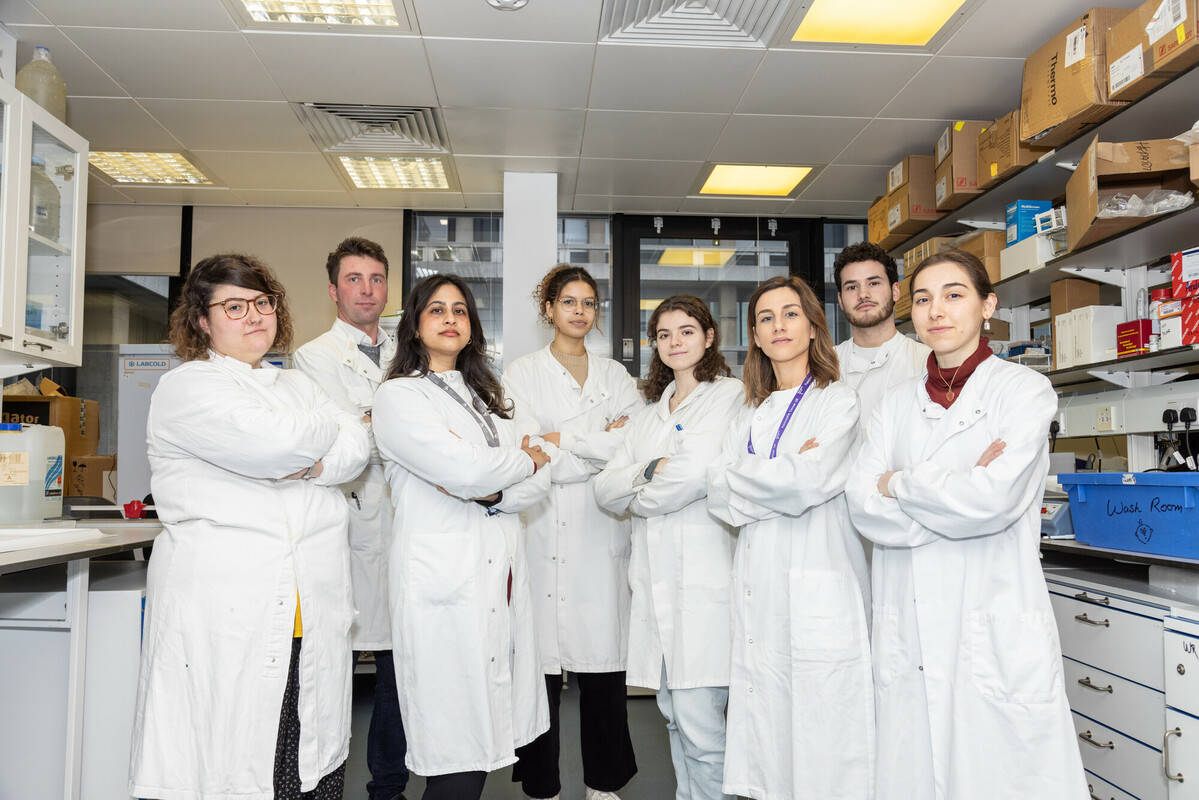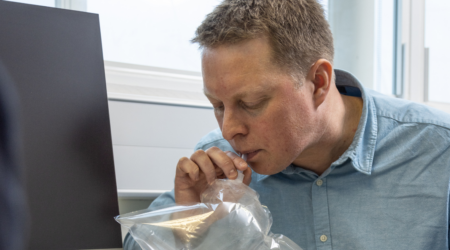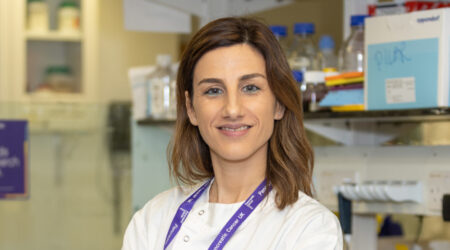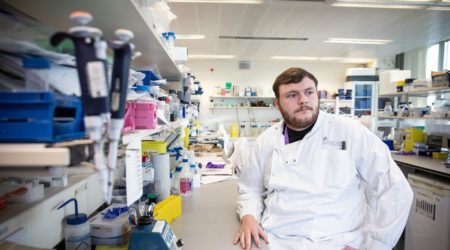Our research strategy 2023 – 2028
Our research strategy sets out our ambition to ensure that the next five years see the transformational advances in pancreatic cancer research that have been sorely lacking over the last 50 years.
We will focus on two key areas; early detection and treatment, where breakthroughs are desperately needed in order to double survival rates.
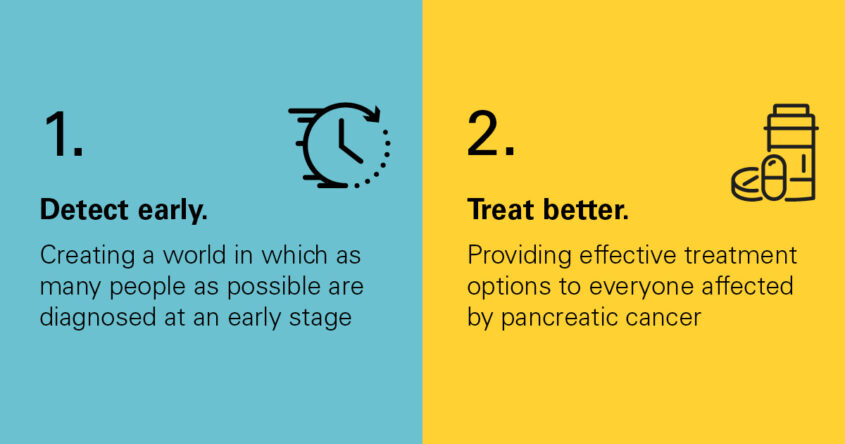

Our researchers are pushing the boundaries of what’s possible. From cutting-edge detection tests and world-first sample collections, to new cancer-killing therapies and improved monitoring of those most at risk. This strategy will drive forward the research breakthroughs that will enable us to detect earlier, treat better and save thousands of lives every year.
We will invest more than ever before into pancreatic cancer research to help us achieve our two strategic objectives:
Detect early
Creating a world in which as many people as possible are diagnosed at an early stage.
Driving earlier detection is essential if more people are to have their cancer diagnosed at a stage where they are still eligible for life-saving or life-extending treatment.
We will invest in cutting-edge research that will:
1. Develop ways to identify and monitor those at risk
Whilst we don’t fully understand exactly what causes pancreatic cancer, we do know some risk factors, including a family history of the disease, hereditary pancreatitis and new-onset diabetes. It is critical that we are able to better identify and monitor those people at increased risk of developing pancreatic cancer and increase our knowledge of the very first subtle biological changes that signify disease, so that they can be identified and treated even before symptoms develop.
2. Generate tests and tools to identify people with symptoms at the earliest possible stage
Over 90% of people with pancreatic cancer visit their GP with relevant symptoms in the two years before their diagnosis, providing a significant window of opportunity for earlier detection. The challenge is that these symptoms are often vague and common to many different health conditions. We must drive the development, refinement and adoption of new detection tools to help GPs quickly identify patients who need further investigation and treatment.
Treat better
Providing effective treatment options to everyone affected by pancreatic cancer.
Early detection alone is not enough, it is vital that we also learn how to treat pancreatic cancer better. Current treatments are limited and highly toxic – and people with pancreatic cancer are often too unwell to tolerate the challenging side-effects they cause.
We will invest in cutting-edge research which aims to:
1. Develop and discover new treatments
We will focus on building our knowledge of the unique underlying biology of pancreatic cancer tumours and the surrounding cells to help us improve current therapies and ultimately develop the world’s first treatments specifically designed to target pancreatic cancer. We will support innovative research that will help us to understand how pancreatic cancer cells grow and spread so aggressively and how they influence nearby healthy cells to protect them. We will learn how current treatments, like chemotherapy, radiation and immunotherapy, that have proven to be revolutionary in other cancers, can be made more effective in targeting and destroying pancreatic cancer.
2. Enhance current treatments
There are a number of treatments available now that could improve the quality of life and survival of people with pancreatic cancer, but these are not always used routinely or effectively. We will dedicate resource and investment to help clinical researchers build the comprehensive research evidence that we need to define how nutritional, psychological and physical support can be combined. This will then be used to enhance the outcomes of surgery and chemotherapy, giving people with pancreatic cancer the maximum benefit from treatments that will help them to live well for longer, extending and saving lives.
"The scale of the challenge we face in pancreatic cancer requires a bold approach. Research is the answer, progress is coming, but it’s time to step up our investment so we can accelerate the breakthroughs so badly needed for people facing this devastating disease and save lives."


